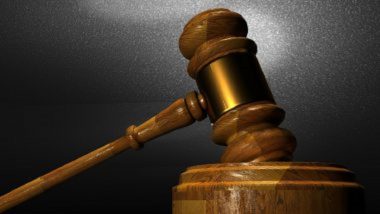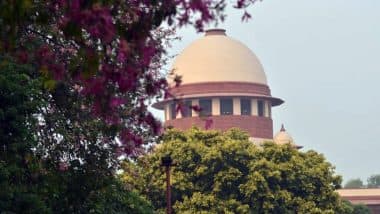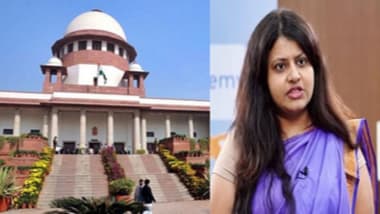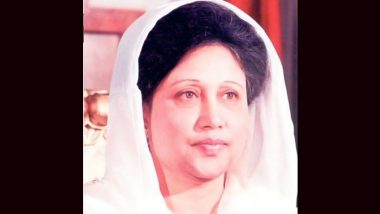Prime Minister Narendra Modi said, "After the verdict, the way every section of society, of every religion, has welcomed it is a proof of India's ancient culture and tradition of social harmony."
Prime Minister Narendra Modi said that the Supreme Court showed that complex cases can be resolved legally. He added that we must vow towards "New India"
Prime Minister Narendra MOdi said that today's day will be remembered as "Golden Day" in India's democracy.
The Supreme Court has delivered a historic verdict today.
India is the largest democratic country. Today Supreme Courts verdict showed there is unity in diversity
According to reports, Sunni Waqf Board has decided not to file a review petition on the Ayodhya verdict.
AIMIM chief Asaduddin Owaisi said that he was not satisfied with the Supreme Court's judgment in the Ayodhya case.
Reacting to the Ayodhya verdict, Prime Minister Narendra Modi said the judgment will "reaffirm people's faith in the judicial process".
Sunni Waqf Board lawyer Zafaryab Jilani said that they were not satisfied with the Supreme Court court verdict in the Ayodhya case and will consider filing a review petition.
Iqbal Ansari, a Muslim litigant, said that he respects the judgment of the Supreme Court. I am happy that Supreme Court has finally delivered a verdict, Ansari said.
New Delhi, November 9: A five-judge Constitution Bench of the Supreme Court, headed by Chief Justice of India Ranjan Gogoi, will deliver its verdict in the politically sensitive Babri Masjid-Ram Janmabhoomi title dispute case today. The bench, also comprising Justices SA Bobde, DY Chandrachud, Ashok Bhushan and S Abdul Nazeer, will pronounce judgment in the Ayodhya case at 10:30 am. Stay connected with us to catch live updates on the pronouncement of judgment by the apex court in the contentious Ayodhya case. Timeline of the 134-Year-Old Legal Dispute in Ayodhya.
The Supreme Court reserved the judgement on October 16 after a marathon hearing of 40 days. Prior to the day-to-day hearing, a court-appointed mediation panel held talks between Hindu and Muslim parties to develop a consensus in the Ayodhya case. However, the talks failed reportedly because of the hardline stand taken by Jamiat Ulema-e-Hind and VHP-backed Ram Janmabhoomi Nyas. The Ayodhya dispute began way back in 1853 when the first incident of communal violence over the Ayodhya issue was recorded. Babri Masjid-Ram Janmabhoomi Case Verdict: Jamiat Ulema-e-Hind Appeals to Muslims And Hindus to Respect Supreme Court Judgment.
Ahead of the verdict, Prime Minister Narendra Modi urged citizens to maintain peace and harmony. In a series of tweets, PM Modi said that the "Ayodhya verdict will not be anybody's victory or loss". "I appeal to countrymen that it should be our priority to strengthen our tradition of maintaining peace and harmony after Ayodhya verdict. In the run up to Ayodhya verdict, efforts have been made by various people and organisations to maintain harmonious atmosphere. We have to maintain amity even after Ayodhya verdict," he said in another tweet.
Ayodhya Case: Watch Brief History
In 2010, a three-judge bench of the Allahabad High Court equally distributed the 2.77 acres disputed land between Ram Lalla, Nirmohi Akhara and Sunni Waqf Board. The Supreme Court heard a batch of petitions against the 2010 judgement. Ahead of the top court's verdict, security has been increased across the country, especially in Uttar Pradesh. Schools, colleges and other educational institutes will remain shut as a precautionary measure in the wake of the Ayodhya verdict.
Chief Justice Ranjan Gogoi had met top Uttar Pradesh officials to discuss law-and-order arrangements in this regard. In 1992, rightwing activists demolished the 16th-century Babri mosque which they believed was built on the ruins of an ancient temple that marked the birthplace of Lord Ram.













 Quickly
Quickly




















